Faculty members are listed in alphabetical order (by surname).
Titi Akinsanmi
Strategist consultant on information and communications technologies, Nigeria
 Titi holds a Masters in Public Policy and Development with experience across the public and private sectors. She is an expert strategist on information and communications technologies with a focus on the role of government, civil society and the private sector in enabling innovating digital economy. Her experience spans both the public and private sectors consulting for a range of international institutions including AfriNIC, the World Bank Institute, IICD, Mindset, UN-GAID, UNECA, SchoolNet Africa and MTech Communications. She initiated, managed and or led delivery on projects and initiatives for ICT and development, ICT and education, the information society, internet governance, telecom value added products and services within Nigeria, South Africa and across over 30 other nations globally. She has engaged with dynamic policy processes nationally, regionally and internationally.
Titi holds a Masters in Public Policy and Development with experience across the public and private sectors. She is an expert strategist on information and communications technologies with a focus on the role of government, civil society and the private sector in enabling innovating digital economy. Her experience spans both the public and private sectors consulting for a range of international institutions including AfriNIC, the World Bank Institute, IICD, Mindset, UN-GAID, UNECA, SchoolNet Africa and MTech Communications. She initiated, managed and or led delivery on projects and initiatives for ICT and development, ICT and education, the information society, internet governance, telecom value added products and services within Nigeria, South Africa and across over 30 other nations globally. She has engaged with dynamic policy processes nationally, regionally and internationally.
Fiona Asonga
Co-consultant of the Internet Society Collaborative Governance Project, Kenya
 Fiona Asonga is a co-consultant of the Internet Society Collaborative Governance Project which is geared towards developing capacity in multi-stakeholder engagements. She is chief executive officer at Technology Service Providers Association which operates the Kenya Internet Exchange Point and Industry Computer Security Incident Response Team. She is one of the three African representatives on the Number Resource Organization – Number Council where she coordinates numbering resource issues across the five regional internet registries. She doubles up as a member of the Internet Corporation of Assigned Names and Numbers (ICANN) where she coordinates the development of Global Numbering Resource Policy Development.
Fiona Asonga is a co-consultant of the Internet Society Collaborative Governance Project which is geared towards developing capacity in multi-stakeholder engagements. She is chief executive officer at Technology Service Providers Association which operates the Kenya Internet Exchange Point and Industry Computer Security Incident Response Team. She is one of the three African representatives on the Number Resource Organization – Number Council where she coordinates numbering resource issues across the five regional internet registries. She doubles up as a member of the Internet Corporation of Assigned Names and Numbers (ICANN) where she coordinates the development of Global Numbering Resource Policy Development.
Chenai Chair
Researcher/Communications & Evaluations Manager at Research ICT Africa, Zimbabwe
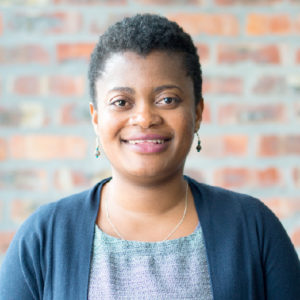 Chenai Chair’s interest in the ICT sector developed from learning of mobiles for development while writing her Master’s thesis titled, “Mobile Phones for Development: How Have Women in the Informal Sector used their Mobile Phones to Enhance Themselves and their Business?” in 2014. Chenai focuses on issues of ICT access and use and related policy development, and has worked on projects in South Africa, Zambia, Rwanda, Ghana and Kenya. Her areas of research include youth access and use, gendered issues of access and internet governance. She recently completed a policy paper on youth, internet and deprivation in Africa.
Chenai Chair’s interest in the ICT sector developed from learning of mobiles for development while writing her Master’s thesis titled, “Mobile Phones for Development: How Have Women in the Informal Sector used their Mobile Phones to Enhance Themselves and their Business?” in 2014. Chenai focuses on issues of ICT access and use and related policy development, and has worked on projects in South Africa, Zambia, Rwanda, Ghana and Kenya. Her areas of research include youth access and use, gendered issues of access and internet governance. She recently completed a policy paper on youth, internet and deprivation in Africa.
Dawit Bekele
Director of the African Regional Bureau of the Internet Society, Ethiopia
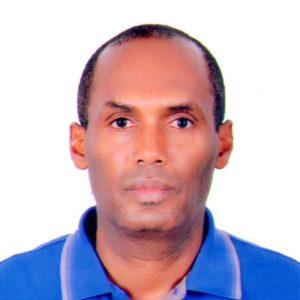 Dawit Bekele is director of the African Regional Bureau of the Internet Society where he has worked since 2006. At the Internet Society, Dawit has led major initiatives for the development of the internet in Africa including infrastructure development, internet-related human capacity, promotion of the multi-stakeholder internet governance model and the use of the internet for the development of Africa. Prior to joining the Internet Society, Dawit worked at Addis Ababa University as assistant professor in Computer Science and as a consultant for major international organizations such as UNECA, UNESCO and the World Bank. He was also co-founder and managing director of EthioLink, an internet company that pioneered e-commerce in Ethiopia. Dawit obtained a PhD in Computer Science from the University of Paul Sabatier in France in 1994, and more recently in 2014, a Master’s degree in Business Leadership from the University of South Africa.
Dawit Bekele is director of the African Regional Bureau of the Internet Society where he has worked since 2006. At the Internet Society, Dawit has led major initiatives for the development of the internet in Africa including infrastructure development, internet-related human capacity, promotion of the multi-stakeholder internet governance model and the use of the internet for the development of Africa. Prior to joining the Internet Society, Dawit worked at Addis Ababa University as assistant professor in Computer Science and as a consultant for major international organizations such as UNECA, UNESCO and the World Bank. He was also co-founder and managing director of EthioLink, an internet company that pioneered e-commerce in Ethiopia. Dawit obtained a PhD in Computer Science from the University of Paul Sabatier in France in 1994, and more recently in 2014, a Master’s degree in Business Leadership from the University of South Africa.
Ian Brown
Principal Scientific Officer at the UK government’s Department for Digital Culture, Media and Sport
 Ian Brown is Principal Scientific Officer at the UK government’s Department for Digital Culture, Media and Sport; and Senior Fellow with Research ICT Africa’s Digital Policy Programme, where he is researching cyber-security and human rights policy in Africa. He was previously Professor of Information Security and Privacy at the University of Oxford, and a Knowledge Exchange Fellow with the Commonwealth Secretariat and UK National Crime Agency. His academic publications include Regulating Code (2013, MIT Press, with Christopher T. Marsden) and Research Handbook on Governance of the Internet (2012, Edward Elgar).
Ian Brown is Principal Scientific Officer at the UK government’s Department for Digital Culture, Media and Sport; and Senior Fellow with Research ICT Africa’s Digital Policy Programme, where he is researching cyber-security and human rights policy in Africa. He was previously Professor of Information Security and Privacy at the University of Oxford, and a Knowledge Exchange Fellow with the Commonwealth Secretariat and UK National Crime Agency. His academic publications include Regulating Code (2013, MIT Press, with Christopher T. Marsden) and Research Handbook on Governance of the Internet (2012, Edward Elgar).
Avri Doria
Research consultant, USA

Avri Doria is a research consultant with a number of contracts with both NGOs and the technical community. She served on the UN Working Group on Enhanced Cooperation I (WGEC) and the UN Working Group on Internet Governance (WGIG). She served as a member the Internet Governance Forum (IGF) Secretariat and was a member of the IGF Multistakeholder Advisory Group (IGF MAG). As a technologist she has been involved in the development of Internet protocols and architectures for over 30 years; is co-chair of a Research Group on Human Rights Protocol Considerations and a member of the Internet Research Steering Group (IRSG). She has been active in ICANN policy, was chair of the GNSO Council and is currently a member of the ICANN Board. Avri was awarded the ICANN Multistakeholder Ethos award in 2014.
Anriette Esterhuysen
Director of global policy and strategy of the Association for Progressive Communications, South Africa
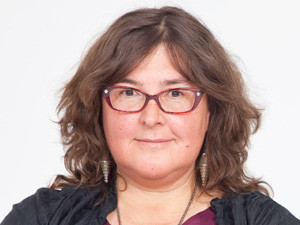 Anriette is Senior Advisor on Internet Governance, Advocacy and Strategy at the Association for Progressive Communications (APC), an international network of organizations working with Information and Communications Technologies (ICT) to support social justice and development. She was executive director of APC for seventeen years, until March 2017. Prior to joining APC, Anriette was executive director of SANGONeT, an internet service provider and training institution for civil society, labour and community organizations in Southern Africa. In 2013 Anriette was inducted into the Internet Hall of Fame for her contribution to connecting people and institutions in Africa to the internet. Anriette has published extensively on ICTs for development and social justice. She holds postgraduate qualifications in Social Sciences from the University of Witwatersrand. Anriette currently serves on the Global Commission on the Stability and Security of Cyberspace.
Anriette is Senior Advisor on Internet Governance, Advocacy and Strategy at the Association for Progressive Communications (APC), an international network of organizations working with Information and Communications Technologies (ICT) to support social justice and development. She was executive director of APC for seventeen years, until March 2017. Prior to joining APC, Anriette was executive director of SANGONeT, an internet service provider and training institution for civil society, labour and community organizations in Southern Africa. In 2013 Anriette was inducted into the Internet Hall of Fame for her contribution to connecting people and institutions in Africa to the internet. Anriette has published extensively on ICTs for development and social justice. She holds postgraduate qualifications in Social Sciences from the University of Witwatersrand. Anriette currently serves on the Global Commission on the Stability and Security of Cyberspace.
Teki Akuetteh Falcone
Founder and Executive director of Africa Digital Rights’ Hub, Ghana
 Teki Akuetteh Falconer is founder and executive director of Africa Digital Rights’ Hub. She set up the Data Protection Commission of Ghana and facilitated implementation of Ghana’s Data Protection Act. She is a senior partner at Nsiah Akuetteh & Co, a law firm based in Accra, Ghana that specialises in information technology and telecommunication law in Africa. She is a privacy and data protection consultant and previously worked for the Government of Ghana in the development of several key legislations for the ICT sector including the Data Protection Act, 2012 (Act 843), Electronic Communications Act, 2008 (Act 775) and Electronic Transactions Act, 2012 (Act 772).
Teki Akuetteh Falconer is founder and executive director of Africa Digital Rights’ Hub. She set up the Data Protection Commission of Ghana and facilitated implementation of Ghana’s Data Protection Act. She is a senior partner at Nsiah Akuetteh & Co, a law firm based in Accra, Ghana that specialises in information technology and telecommunication law in Africa. She is a privacy and data protection consultant and previously worked for the Government of Ghana in the development of several key legislations for the ICT sector including the Data Protection Act, 2012 (Act 843), Electronic Communications Act, 2008 (Act 775) and Electronic Transactions Act, 2012 (Act 772).
Johan Hellström
Author of The Innovative Use of Mobile Applications in East Africa (2010), Norway
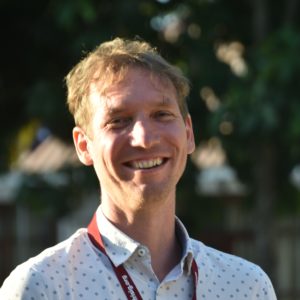 Johan Hellström has worked on digital development (ICT4D) in various ways for more than a decade, including setting up physical telecentres and conducting research on mobile-facilitated participation and crowdsourcing. He has been sitting on the board for Digital Impact Alliance (DIAL) and in the advisory council for Alliance for Affordable Internet (A4AI). Johan attended the World Summit on the Information Society (WSIS) in Tunis 2005, and has since had a special interest in internet as a public good that serves development priorities, equality and justice. Johan currently works at the Embassy of Sweden in Dar es Salaam where he oversees research cooperation and is the focal point for innovation. He is the author of The Innovative Use of Mobile Applications in East Africa (2010), and the co-author of “ICT4D Donor Agencies and Networks” (in International Encyclopedia of Digital Communication and Society (2015)), and “Crowdsourcing Development – from Funding to Reporting” (in the Handbook of International Development 2016).
Johan Hellström has worked on digital development (ICT4D) in various ways for more than a decade, including setting up physical telecentres and conducting research on mobile-facilitated participation and crowdsourcing. He has been sitting on the board for Digital Impact Alliance (DIAL) and in the advisory council for Alliance for Affordable Internet (A4AI). Johan attended the World Summit on the Information Society (WSIS) in Tunis 2005, and has since had a special interest in internet as a public good that serves development priorities, equality and justice. Johan currently works at the Embassy of Sweden in Dar es Salaam where he oversees research cooperation and is the focal point for innovation. He is the author of The Innovative Use of Mobile Applications in East Africa (2010), and the co-author of “ICT4D Donor Agencies and Networks” (in International Encyclopedia of Digital Communication and Society (2015)), and “Crowdsourcing Development – from Funding to Reporting” (in the Handbook of International Development 2016).
Ephraim Kenyanito
Eastern Africa- Digital Program Officer, ARTICLE 19, Kenya
 Ephraim Kenyanito manages ARTICLE 19 Eastern Africa’s technology policy and human rights projects in 14 countries and has worked over the past six years in the African ICT/IP and media law industry researching its nexus with international development. He is a member of the European Commission Global Internet Policy Observatory’s (GIPO) advisory group and the advisory group for Code Red, a global initiative to accelerate reform of security organisations. He is pursuing a Master of Laws in Computer and Communications Law.
Ephraim Kenyanito manages ARTICLE 19 Eastern Africa’s technology policy and human rights projects in 14 countries and has worked over the past six years in the African ICT/IP and media law industry researching its nexus with international development. He is a member of the European Commission Global Internet Policy Observatory’s (GIPO) advisory group and the advisory group for Code Red, a global initiative to accelerate reform of security organisations. He is pursuing a Master of Laws in Computer and Communications Law.
Mallory Knodel
Head of Digital for ARTICLE 19, USA
 Mallory Knodel is the Head of Digital for ARTICLE 19. She is the co-chair of the Human Rights and Protocol Considerations research group of the Internet Research Task Force and an advisor to the Freedom Online Coalition. Mallory takes a human-rights-people-centred approach to technology implementation and cybersecurity policy advocacy. Originally from the US but living in Nairobi, she has worked with grassroots organisations around the world in Bolivia, France, Palestine and the UK. She has used free software throughout her professional career and considers herself a public interest technologist. She holds a BS in Physics and Mathematics and an MA in Science Education.
Mallory Knodel is the Head of Digital for ARTICLE 19. She is the co-chair of the Human Rights and Protocol Considerations research group of the Internet Research Task Force and an advisor to the Freedom Online Coalition. Mallory takes a human-rights-people-centred approach to technology implementation and cybersecurity policy advocacy. Originally from the US but living in Nairobi, she has worked with grassroots organisations around the world in Bolivia, France, Palestine and the UK. She has used free software throughout her professional career and considers herself a public interest technologist. She holds a BS in Physics and Mathematics and an MA in Science Education.
Frederico Links
Journalist, Research associate at Institute for Public Policy Research, Namibia
 Frederico Links is a Namibian journalist working freelance at Namibia daily, The Namibian, and a former editor of Insight Namibia magazine. He is also a research associate with Namibia’s think-tank, the Institute for Public Policy Research. He is an access to information advocate and a founder member, and chairperson, of the Access to Information in Namibia (ACTION), a coalition of civil society, media organisations and social activists. He is also a founder member, and chairperson, of the Namibia Internet Governance Forum (NamIGF), as well as an ISOC Namibia board member and convener of the chapter’s policy committee. He has a strong interest in cybersecurity, privacy and data protection and freedom of expression.
Frederico Links is a Namibian journalist working freelance at Namibia daily, The Namibian, and a former editor of Insight Namibia magazine. He is also a research associate with Namibia’s think-tank, the Institute for Public Policy Research. He is an access to information advocate and a founder member, and chairperson, of the Access to Information in Namibia (ACTION), a coalition of civil society, media organisations and social activists. He is also a founder member, and chairperson, of the Namibia Internet Governance Forum (NamIGF), as well as an ISOC Namibia board member and convener of the chapter’s policy committee. He has a strong interest in cybersecurity, privacy and data protection and freedom of expression.
Verengai Mabika
Serial entrepreneur, Zimbabwe
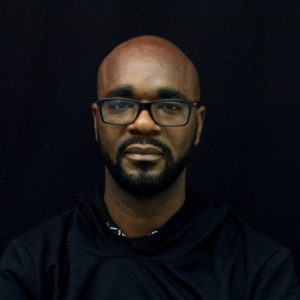 Verengai Mabika is a leader in technology and social innovation. He joined the Internet Society Global Policy team as senior policy advisor for Africa in 2017. A serial entrepreneur he founded three organizations, in 2010: Development Reality Institute (DRI), a social innovation hub behind the catalytic http://www.greenvarsity.org/; the Green Innovations Hub now popularised in 32 Africa countries; and in 2014, co-founded Golix, an African blockchain fintech start-up based in Zimbabwe, now with services in Kenya, Rwanda, Nigeria, Tanzania, Cameron, Uganda and South Africa. In 2013 he co-founded the Internet Society Chapter in Zimbabwe, which is now advising government in setting internet policies and standards. An Ashoka Fellow, Echoing Green Fellow, and a member of the BMW Foundation Responsible Leaders Forum, Verengai supports the Internet Society’s global policy work in Africa, including managing partnerships with African Union Commission, Africa Telecommunications Union, Regional Economic Communities (RECs), Regulators Associations and sub-Regional Internet Governance forums. He also leads the ISOC regional policy work related IoT Security, MANRS, internet governance, internet infrastructure security, online privacy and community networks. Verengai is a blockchain enthusiast and has interests in artificial intelligence and IoT.
Verengai Mabika is a leader in technology and social innovation. He joined the Internet Society Global Policy team as senior policy advisor for Africa in 2017. A serial entrepreneur he founded three organizations, in 2010: Development Reality Institute (DRI), a social innovation hub behind the catalytic http://www.greenvarsity.org/; the Green Innovations Hub now popularised in 32 Africa countries; and in 2014, co-founded Golix, an African blockchain fintech start-up based in Zimbabwe, now with services in Kenya, Rwanda, Nigeria, Tanzania, Cameron, Uganda and South Africa. In 2013 he co-founded the Internet Society Chapter in Zimbabwe, which is now advising government in setting internet policies and standards. An Ashoka Fellow, Echoing Green Fellow, and a member of the BMW Foundation Responsible Leaders Forum, Verengai supports the Internet Society’s global policy work in Africa, including managing partnerships with African Union Commission, Africa Telecommunications Union, Regional Economic Communities (RECs), Regulators Associations and sub-Regional Internet Governance forums. He also leads the ISOC regional policy work related IoT Security, MANRS, internet governance, internet infrastructure security, online privacy and community networks. Verengai is a blockchain enthusiast and has interests in artificial intelligence and IoT.
James Mutandwa Madya
Deputy Director (communications) in Zimbabwe’s Ministry of ICT and Courier Services, Zimbabwe
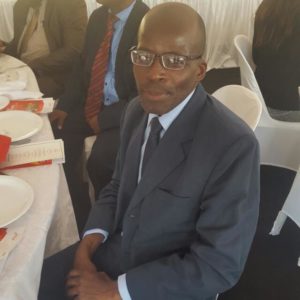 James Mutandwa Madya holds a Master of Science Degree in Rural and Urban Planning from the University of Zimbabwe. He has a varied career spanning 27 years ranging from development/project planning; road freight transport management; aviation management; and policy formulation and analysis in the housing, logistics and transport, and ICT sectors of Zimbabwe. He is currently deputy director (communications) in Zimbabwe’s Ministry of ICT and Courier Services. James is an alumnus of AfriSIG 2015 and is interested in all aspects of internet governance.
James Mutandwa Madya holds a Master of Science Degree in Rural and Urban Planning from the University of Zimbabwe. He has a varied career spanning 27 years ranging from development/project planning; road freight transport management; aviation management; and policy formulation and analysis in the housing, logistics and transport, and ICT sectors of Zimbabwe. He is currently deputy director (communications) in Zimbabwe’s Ministry of ICT and Courier Services. James is an alumnus of AfriSIG 2015 and is interested in all aspects of internet governance.
Dr. Carlos Rey-Moreno
Telecommunications Engineer, South Africa
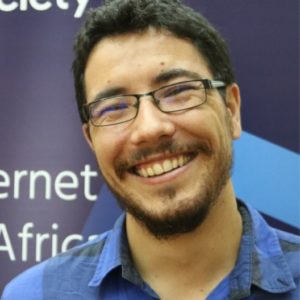 Dr. Carlos Rey-Moreno is a telecommunications engineer with a background in development studies. He has been involved in rural connectivity projects in underserved areas for more than 10 years, initially in Latin America, and more recently as one of the founders of Zenzeleni Networks, a community-owned ISP providing affordable communications in rural Eastern Cape, South Africa. In studying how to scale Zenzeleni Networks, he has participated in the deployment of another community network in Namibia, mapped the community network initiatives in Africa, co-organised the first two editions of the Summit of Community Networks in Africa, and authored an in-dept h report on the topic. Currently, he is with the Association for Progressive Communications, coordinating a project aimed at creating the conditions for community networks to flourish in the global South.
Dr. Carlos Rey-Moreno is a telecommunications engineer with a background in development studies. He has been involved in rural connectivity projects in underserved areas for more than 10 years, initially in Latin America, and more recently as one of the founders of Zenzeleni Networks, a community-owned ISP providing affordable communications in rural Eastern Cape, South Africa. In studying how to scale Zenzeleni Networks, he has participated in the deployment of another community network in Namibia, mapped the community network initiatives in Africa, co-organised the first two editions of the Summit of Community Networks in Africa, and authored an in-dept h report on the topic. Currently, he is with the Association for Progressive Communications, coordinating a project aimed at creating the conditions for community networks to flourish in the global South.
Bob Ochieng
Telecommunications engineer, Kenya
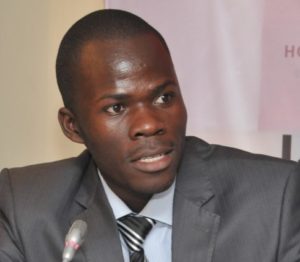 Bob is a telecommunications Eng. with 10+ years’ experience in the multi-disciplinary Telecoms/ICT industry and Project Management. As the primary representative of the Internet Corporation for Assigned Names and Numbers (ICANN) in East and Southern Africa, Bob is charged with developing and executing the organization’s strategic and tactical objectives in the region including: Overseeing, leading and executing ICANN’s engagement in the region with all stakeholders, including governments, the academic, business and legal communities as well non-commercial interests; Monitoring, identifying and analyzing internet related developments, public policy issues and trends, and impact on strategy in the region translating these into practical plans.
Bob is a telecommunications Eng. with 10+ years’ experience in the multi-disciplinary Telecoms/ICT industry and Project Management. As the primary representative of the Internet Corporation for Assigned Names and Numbers (ICANN) in East and Southern Africa, Bob is charged with developing and executing the organization’s strategic and tactical objectives in the region including: Overseeing, leading and executing ICANN’s engagement in the region with all stakeholders, including governments, the academic, business and legal communities as well non-commercial interests; Monitoring, identifying and analyzing internet related developments, public policy issues and trends, and impact on strategy in the region translating these into practical plans.
Otto Saki
Programme officer at Ford Foundation Office for Southern Africa, Zimbabwe
 Otto Saki is a programme officer at Ford Foundation Office for Southern Africa where he covers a strategic driven portfolio of grantees working with regional mechanisms, business and human rights, women's rights, gender and sexual violence, Africa-China relations and internet freedom in collaboration with the New York team. He has a keen interest in human rights law, health policies, the political economy, information technology, governance, and regional economic communities. Otto has provided technical assistance to civil society, government ministries and government agencies across sub-Saharan Africa in Zimbabwe, Uganda, Botswana, Swaziland, South Sudan and Somalia on various law-related matters including legislative reform. Otto has researched and written on internet governance frameworks in Zimbabwe, commented on various model laws and as well as comparative analysis of Zimbabwe cyber security framework. He chairs the Centre for Applied Legal Research (CALR) that provides technical assistance in law alignment to Zimbabwe’ Ministry of Justice and the Attorney General's Office, in addition to being part of start-up firm of lawyers interested in law and tech, Centre for Technology Law and Development (cTLD). He is a law graduate of the University of Zimbabwe, Columbia University Law School and leadership from Harvard Kennedy School of Government.
Otto Saki is a programme officer at Ford Foundation Office for Southern Africa where he covers a strategic driven portfolio of grantees working with regional mechanisms, business and human rights, women's rights, gender and sexual violence, Africa-China relations and internet freedom in collaboration with the New York team. He has a keen interest in human rights law, health policies, the political economy, information technology, governance, and regional economic communities. Otto has provided technical assistance to civil society, government ministries and government agencies across sub-Saharan Africa in Zimbabwe, Uganda, Botswana, Swaziland, South Sudan and Somalia on various law-related matters including legislative reform. Otto has researched and written on internet governance frameworks in Zimbabwe, commented on various model laws and as well as comparative analysis of Zimbabwe cyber security framework. He chairs the Centre for Applied Legal Research (CALR) that provides technical assistance in law alignment to Zimbabwe’ Ministry of Justice and the Attorney General's Office, in addition to being part of start-up firm of lawyers interested in law and tech, Centre for Technology Law and Development (cTLD). He is a law graduate of the University of Zimbabwe, Columbia University Law School and leadership from Harvard Kennedy School of Government.
‘Gbenga Sesan
Executive director of Paradigm Initiative, Nigeria
 ‘Gbenga Sesan is the executive director of Paradigm Initiative. He trained as an electronic and electrical engineer at Obafemi Awolowo University. ‘Gbenga completed executive education programmes at top universities in Nigeria and abroad. He has been a consultant for numerous institutions, including Microsoft, Harvard University and United Nations agencies. A Schwab Foundation Social Entrepreneur of the Year and former member of the United Nations Committee of eLeaders on Youth and ICT, he is a CyberStewards Fellow, Crans Montana Forum Fellow, Archbishop Desmond Tutu Leadership Fellow, Ashoka Fellow, Our Common Future Fellow and Cordes Fellow. ‘Gbenga served as a member of the Presidential Committees on Harmonization of Information Technology, Telecommunications and Broadcasting Sectors (2006) and Roadmap for the Achievement of Accelerated Universal Broadband Infrastructure and Services Provision (2013), was listed by CNN as one of the Top 10 African Tech Voices on Twitter and by Ventures Africa as one of 40 African Legends Under 40.
‘Gbenga Sesan is the executive director of Paradigm Initiative. He trained as an electronic and electrical engineer at Obafemi Awolowo University. ‘Gbenga completed executive education programmes at top universities in Nigeria and abroad. He has been a consultant for numerous institutions, including Microsoft, Harvard University and United Nations agencies. A Schwab Foundation Social Entrepreneur of the Year and former member of the United Nations Committee of eLeaders on Youth and ICT, he is a CyberStewards Fellow, Crans Montana Forum Fellow, Archbishop Desmond Tutu Leadership Fellow, Ashoka Fellow, Our Common Future Fellow and Cordes Fellow. ‘Gbenga served as a member of the Presidential Committees on Harmonization of Information Technology, Telecommunications and Broadcasting Sectors (2006) and Roadmap for the Achievement of Accelerated Universal Broadband Infrastructure and Services Provision (2013), was listed by CNN as one of the Top 10 African Tech Voices on Twitter and by Ventures Africa as one of 40 African Legends Under 40.
Avani Singh
Attorney of the High Court of South Africa, South Africa
 Avani Singh is a practising attorney of the High Court of South Africa, and director and co-founder of ALT Advisory and Power Singh Incorporated. Avani’s work focuses on international and constitutional law, with a particular interest in media law, digital rights and the intersection of law and technology. ALT Advisory, in association with Power Singh Incorporated, works to develop the (private) public interest law model in South Africa by offering legal advisory, research, training and litigation assistance to clients on a range of freedom of expression, privacy and other public law matters. Avani holds B.Comm. (Law) and LL.B. degrees from the University of Pretoria, and is studying towards an MSt in International Human Rights Law at the University of Oxford. She has previously practised as an attorney in the Constitutional Litigation Unit at the Legal Resources Centre and the Information Law team at Webber Wentzel. She has also clerked at the Constitutional Court of South Africa and the International Criminal Court.
Avani Singh is a practising attorney of the High Court of South Africa, and director and co-founder of ALT Advisory and Power Singh Incorporated. Avani’s work focuses on international and constitutional law, with a particular interest in media law, digital rights and the intersection of law and technology. ALT Advisory, in association with Power Singh Incorporated, works to develop the (private) public interest law model in South Africa by offering legal advisory, research, training and litigation assistance to clients on a range of freedom of expression, privacy and other public law matters. Avani holds B.Comm. (Law) and LL.B. degrees from the University of Pretoria, and is studying towards an MSt in International Human Rights Law at the University of Oxford. She has previously practised as an attorney in the Constitutional Litigation Unit at the Legal Resources Centre and the Information Law team at Webber Wentzel. She has also clerked at the Constitutional Court of South Africa and the International Criminal Court.
Lawrence Strickling
Executive Director of the Collaborative Governance Project of the Internet Society, USA
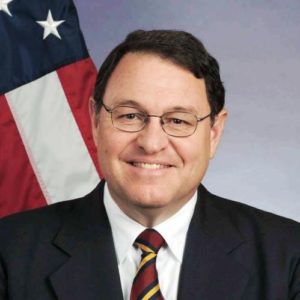 Lawrence E Strickling is the Executive Director of the Collaborative Governance Project of the Internet Society, whose goal is to expand the knowledge and use of multistakeholder, collaborative processes to solve problems and develop norms. He has served as Assistant Secretary for Communications and Information at the US Department of Commerce as administrator of the National Telecommunications and Information Administration where he led government’s engagement with ICANN and directed the US role in transitioning its stewardship of the Domain Name System to the global multistakeholder community. He also expanded the use of multi-stakeholder convenings as an alternative to regulation/legislation in areas of privacy, cybersecurity and intellectual property.
Lawrence E Strickling is the Executive Director of the Collaborative Governance Project of the Internet Society, whose goal is to expand the knowledge and use of multistakeholder, collaborative processes to solve problems and develop norms. He has served as Assistant Secretary for Communications and Information at the US Department of Commerce as administrator of the National Telecommunications and Information Administration where he led government’s engagement with ICANN and directed the US role in transitioning its stewardship of the Domain Name System to the global multistakeholder community. He also expanded the use of multi-stakeholder convenings as an alternative to regulation/legislation in areas of privacy, cybersecurity and intellectual property.
Wakabi Wairagala
Executive Director of the Collaboration on International ICT Policy for East and Southern Africa (CIPESA), Uganda
 Wakabi Wairagala has experience in integrating ICT in governance and development work, and has for many years been involved in national, pan-African and international internet governance processes. As Executive Director of the Collaboration on International ICT Policy for East and Southern Africa (CIPESA), he has diverse research interests that lie at the nexus of Information and Communication Technologies (ICT) and development, citizen participation, innovation, and digital rights. Wakabi holds an MSc and PhD in Informatics from Örebro University (Sweden)and an MA in Journalism and Media Studies from Rhodes University, South Africa.
Wakabi Wairagala has experience in integrating ICT in governance and development work, and has for many years been involved in national, pan-African and international internet governance processes. As Executive Director of the Collaboration on International ICT Policy for East and Southern Africa (CIPESA), he has diverse research interests that lie at the nexus of Information and Communication Technologies (ICT) and development, citizen participation, innovation, and digital rights. Wakabi holds an MSc and PhD in Informatics from Örebro University (Sweden)and an MA in Journalism and Media Studies from Rhodes University, South Africa.
